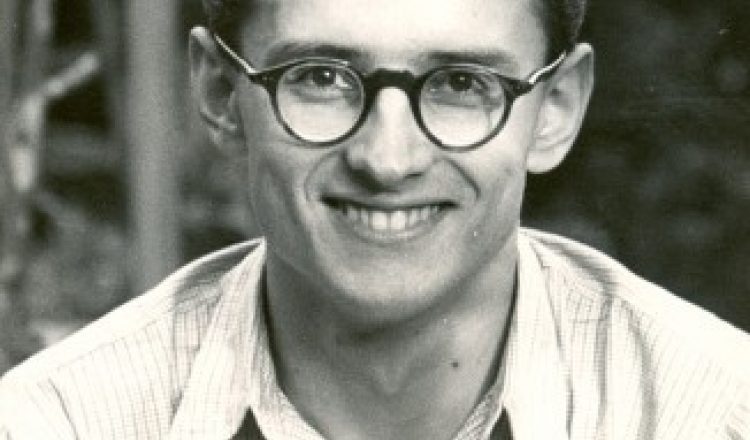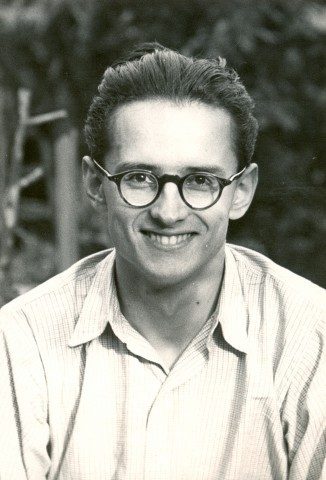
The martyr of the Eucharist – János Brenner

On 8th November 2017 His Holiness, Pope Francis welcomed, Cardinal Angelo Amato, prefect of the Congregation of the Saints at an audience, and entrusted him to make eight decrees public, in which the recognition of two martyrdoms and the heroic virtues of six servants of God was acknowledged.

One of the two martyr was the Hungarian chaplain János Brenner (born on 27th December 1931), who died guarding the faith, guarding the Eucharist on 15th December 1957 - says the bulletin of the Vatican Press Agency.
János Brenner was ordained a priest by bishop Sándor Kovács on 19th June 1955 in the cathedral of Szombathely. He celebrated his first mass in the St. Norbert church of that town. He became the chaplain of Rábakéthely, in the second district of Szentgotthárd, near the Hungarian border. To the parish four filiasbelonged: Magyarlak, Máriaújfalu, Zsida and Farkasfa. The parish priest, Dr. Ferenc Kozma gave a good example, and helped the young priest a lot.
Father János was ready to make any sacrifice for the faithful. He especially loved the children and the youngsters. He respected and loved the people, he was not choosy at all.
One of the faithful remembers thus the holy chaplain: "He had a certain eradiation, which cannot even be described in words. The people loved him, and did their best to go there, where he was and listen to his words. There was something in him, what attracted the people. This was his main crime.: both the young and the old loved him. He won a great number of people for the faith and the Church. He could not pass by a person without stopping and talk to them even a word or two. He always had a beautiful smile on his face... He really and seriously announced the Word of God and testified his faith in every minute. He was a very good confessor since he always gave some advice for our lives."
All these were looked badly at by the Communist regime, especially that he looked after the young. His students and ministrants told how hard he worked with them, he did not only hold religious lessons, but also played games and sports with them.
The representative of the state for the Church wanted to remove him from the community. When the bishop informed Brenner about this, he replied: "I am not afraid, it would be a pleasure for me to stay." The bishop stood by the chaplain and decided to leave him in Rábakéthely. The representative said: "Well then, you shall see the consequences, too."
Father János clearly saw that his vocation was even more trying at that time than when they destroyed the religious convents. The thought of his spiritual journal says this: "My Lord, you know, that I do not seek happiness in this life, since I have put my everything into you... I know, my Lord, that you do not save yours from suffering, since they got a tremendous profit from it."
One autumn evening, when he was on his way home on his motorcycle from Farkasfa, unknown people threw logs in from of him, but with a few manoeuvres he managed to avoid them. When he arrived at home, he said "They weren't lucky", and had a good laugh.

It is still not clear, not even today, what exactly happened on the night of 14-15 December 1957. We only have a few pieces of the puzzle - the testimonies of the suspects and of the convicted and some memories of the witnesses and some clues - based on which Dr. Frigyes Kahler, law-historian reconstructed the events.
According to the witnesses there was a big hustle-and-bustle in Szentgotthárd on 14th December. There was an evening held for the council-members, and at the same time there was also the policemen's ball. The gravedigger of Rábakéthely, who was digging graves for the funeral of two young next day, saw a group wearing leather jackets around the cemetery and the church. The parish priest went to Farkasfa, for the Christmas confession. He spent the night at a family, since next morning he was supposed to have celebrated the mass.
Around midnight a 17-years-old man knocked on the door of the parish with the request that his seriously ill uncle should be given the Sacraments. János Brenner went to the church, took his purse he out the Eucharist in when visiting the sick, and with his companion started towards Zsida on the pitch-dark way leading through the hills. On the way he was attacked many times, but he managed to escape. In the end he was caught near the house of the supposed-sick-uncle. This proves, that his murderers knew: János Brenner takes his vocation seriously. That is why they waited for him at the given address. And there, with the Eucharist around his neck, they killed him, stabbed him 32 times. From the autopsy report we also know that multiple fracture of the hyoid bone and the horns of the laryngeal cartilage were visible on the body. This cannot be caused by strangling; this injury occurs by stepping on the neck and trampling on it. On the white collar belonging to the cassock ground samples were visible, and the silhouette of a sole could also be seen. So, they wanted not only to kill him, but also humiliate him, too.

The investigation was merely a show, everyone was a suspect, even the parish priest. In the end one person was sentenced to death by the courts, but the Supreme Court released him. Later that boy was sentenced, who called János Brenner from the parish.
"God works with those who love him" (Rom 8,28) - the first-mass-motto of János Brenner was the main lead of his life as a priest. He lived and died by this spirituality for Christ and for those entrusted to him. His short, but God-loving life was for the good of all and also (or maybe mainly) is death, since his blood is also the sowing of the Christianity. "The good shepherd lays down his life for his sheep" - that is, what János Brenner did: he gave his life for a non-existent sick, he laid down his life for his vocation and Christ. He was capable of all the sacrifices. He did not fear threats or being persecuted.
During the investigation many charges were brought against him (jealousy, human trafficking) looking for the motive of the murder, but they could not find a single person, who would speak ill of him. After the investigation someone said: "They have just conducted the process of the canonization of János Brenner!" The life of the pure-hearted, honest and faithful to God priest was obvious for everyone. His was not a human trafficker, but a fisher of men.
István Császár - Viktor Attila Soós
His beatification cause opened in 2001 and culminated after Pope Francis confirmed his beatification. The celebration will occur on 1 May 2018 in Szombathely. (9700 Szombathely, Emlékmű-domb)
Photo: brennerjanos.hu










